COVID-19 public health emergency will expire on Thursday
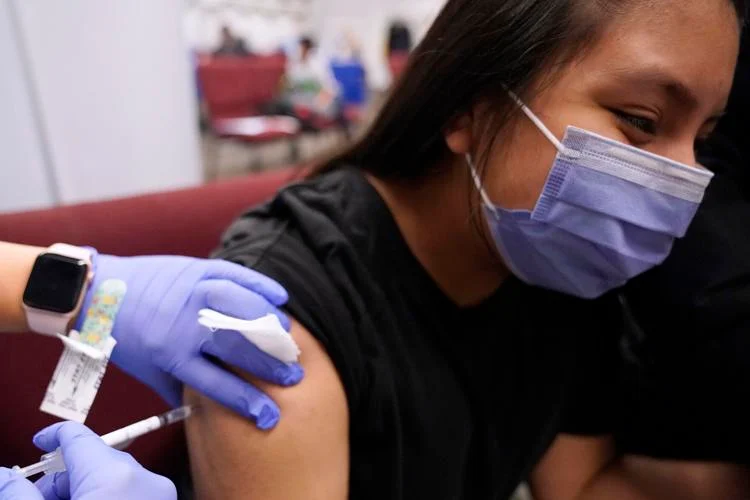
The Alabama Department of Public Health (ADPH) announced on Tuesday that the federally declared public health emergency for COVID-19 will expire on Thursday. Case numbers, hospitalizations, and deaths from COVID-19 are significantly lower now than during surges of the virus. ADPH will continue providing COVID-19 testing and vaccines for uninsured/underinsured people at the local county health departments even after the public health emergency ends. Even though the emergency is no longer in effect, COVID-19 remains a clear and present danger. “Although the COVID-19 pandemic is entering a new phase, the disease is still causing suffering and death in Alabama,” State Health Officer Dr. Scott Harris said. “ADPH is committed to monitoring the effects of this virus in Alabama and will continue to provide data that is accurate and actionable.” For the past three years, ADPH has had access to a large amount of COVID-19 data, some of which had been required to be submitted to the federal government. As these requirements transition, COVID-19 will continue to be reportable in Alabama, but some data will no longer be available. The current COVID-19 dashboards will be modified to use the available data and to better align with data from the Centers for Disease Control and Prevention (CDC). The current Alabama COVID-19 dashboards will update for a final time this week and be available for archive purposes for an unspecified amount of time. ADPH will continue to publish hospital admission data and COVID-19 death data which will be updated, but its reporting frequency will change. Vaccine administration reporting will not be reported as ADPH will no longer receive data from vaccine providers. ADPH continues to recommend the Bivalent COVID-19 Vaccines. The Centers for Disease Control and Prevention (CDC) has simplified its COVID-19 vaccine recommendations. Among the recommendations are that adults ages 65 and older and immunocompromised adults can receive a second dose of the updated vaccine. The CDC recommends that children ages six and older and adults receive an updated bivalent mRNA COVID-19 vaccine, regardless of whether they previously completed their (monovalent) primary series. Alternatives to mRNA COVID-19 vaccines remain available for people who cannot or will not receive an mRNA vaccine. The federal supply of COVID-19 vaccine will be available at no charge until the current supply is exhausted. After this supply of COVID-19 vaccine has been depleted, the vaccine will be sold commercially. People with public or private insurance will continue to be able to access authorized COVID-19 vaccines. For the uninsured, the federal government has announced it will fund a program to keep COVID-19 vaccines free after the vaccines move to the private market. A new partnership will cover the administrative costs of giving doses of vaccines at pharmacy chains and county health departments to uninsured people. Some doctors remain skeptical of the effectiveness and safety of the COVID-19 vaccines, which use experimental mRNA technology. The end of the public health emergency also means there will be changes in the availability of free COVID-19 tests. People covered by Medicaid can access free at-home tests through September 2024. The ADPH will continue to monitor COVID-19 as it regularly monitors other respiratory diseases and will respond to any future surges or developments. COVID-19 is caused by the SARS-CoV-2 virus – a type of coronavirus. 1,162,474 Americans have died, including 21,137 Alabamians, in the COVID-19 global pandemic. 107 million Americans contracted the virus despite efforts to limit the spread of the virus. To connect with the author of this story or to comment, email brandonmreporter@gmail.com.
Joe Biden signs bill on COVID origins declassification

President Joe Biden signed a bipartisan bill Monday that directs the federal government to declassify as much intelligence as possible about the origins of COVID-19 more than three years after the start of the pandemic. The legislation, which passed both the House and Senate without dissent, directs the Office of the Director of National Intelligence to declassify intelligence related to China’s Wuhan Institute of Virology. It cites “potential links” between the research that was done there and the outbreak of COVID-19, which the World Health Organization declared a pandemic on March 11, 2020. The law allows for redactions to protect sensitive sources and methods. U.S. intelligence agencies are divided over whether a lab leak or a spillover from animals is the likely source of the deadly virus. Experts say the true origin of the coronavirus pandemic, which has killed more than 1.1 million in the U.S. and millions more around the globe, may not be known for many years — if ever. Biden, in a statement, said he was pleased to sign the legislation. “My Administration will continue to review all classified information relating to COVID–19’s origins, including potential links to the Wuhan Institute of Virology,” he said. “In implementing this legislation, my Administration will declassify and share as much of that information as possible, consistent with my constitutional authority to protect against the disclosure of information that would harm national security.” Republished with the permission of The Associated Press.
Mike Rogers and Jim Banks seek answers on how Covid-19 vaccine mandate impacted service members
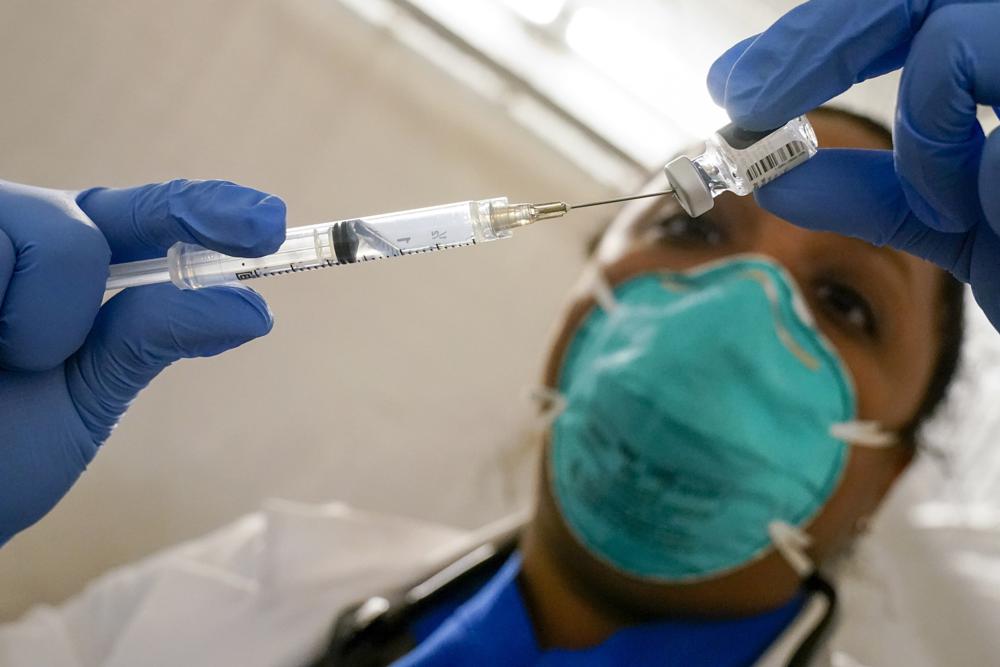
In January, Congress overturned the military COVID-19 vaccine mandate. Now Congressmen Mike Rogers, Chairman of the powerful House Armed Services Committee (HASC), and Jim Banks, the Chairman of the HASC Subcommittee on Military Personnel, have sent a letter to Secretary of Defense Lloyd Austin seeking answers on the impact of the COVID-19 vaccine mandate on servicemembers. Rogers and Banks expressed their displeasure that the Department of Defense has been slow to respond to HASC committee inquiries. “A letter of December 23, 2022, requested ‘your plan to implement this statutory requirement.’ Your four-sentence reply to the letter on January 26, 2023, failed to include any implementation plan,” Rogers and Banks wrote. “Additionally, staff has repeatedly asked for answers to many COVID-19 rescission questions critically important to the retention and recruitment of men and women in each of the armed services.” “We write to express our concern over the lack of clarity provided to the Armed Forces and to the American people related to your memorandum announcing the Department of Defense’s (DoD) rescission of the COVID-19 vaccine mandate,” Rogers and Banks continued. “While we acknowledge and appreciate your rescission memorandum writ large, many questions remain and have gone unanswered regarding the implementation of the rescission.” The Congressmen have asked for answers to a series of questions: · The COVID-19 rescission implementation plan, including implementing guidance and responsibilities within the Department of Defense and the Military Departments · The COVID-19 rescission strategic communication plan to the Armed Forces · The number of discharges that occurred between the signing of the NDAA and the time of your rescission directive · The treatment of potential recruits and accessions who have not taken the COVID-19 vaccine · The effect of the COVID-19 rescission on civilian personnel, including any changes to the current travel policy · The number of discharges for the roughly 6000 Active Component servicemembers and 2000 Reserve Component servicemembers separated because of the mandate, broken down by rank, years of service, and date separated (as well as their discharge characterization) · The number of servicemembers required to pay back bonuses, the average amount to be repaid, and the amount already repaid · Whether DoD policy still requires repayments of bonuses · The number of National Guard members prevented from drilling because of the mandate, including the number of drills missed and amount of time they were prevented from drilling · Reasons why DoD stopped reviewing accommodation of requests from servicemembers who sought vaccination exemptions · Whether service academies have fully removed vaccine mandates for students and faculty · Whether any students at the service academies were refused diplomas due to failing to abide by the prior vaccine mandate, and if so, whether the academies will be making these students whole by providing diplomas and clear student records upon or following graduation · Whether DoD has reinstated any servicemembers forced out for failure to abide by the vaccine mandate, and DoD’s plan for ensuring that reinstatement is offered to any separated servicemembers; and, Austin has issued a memorandum overturning the mandate following passage of a National Defense Authorization Act requiring him to do so. The rescission mandate written states, “no individuals currently serving in the Armed Forces shall be separated solely on the basis of their refusal to receive the COVID-19 vaccination if they sought an accommodation on religious, administrative, or medical grounds.” The wording of this memorandum prompted more specific questions from Rogers and Banks: · Does this directive of your rescission memorandum mean that unless servicemembers submit an accommodation request, they are still required to receive the COVID vaccination? · Are potential military recruits required to submit an accommodation request to avoid being forced to receive the COVID vaccine? Rogers and Banks are requesting that the Department of Defense provide answers to these questions to the Committee no later than February 21, 2023. “Answers to these questions are crucial for Congress to fulfill its appropriate oversight responsibilities and provide any required legislative relief,” Rogers and Banks wrote. “Please note, many of the questions or requests for information presented above have gone unanswered for weeks, if not months. The Department and the Biden Administration must no longer refuse to respond to requests for information from this Committee.” The Committee on Armed Services has oversight jurisdiction over the Department of Defense. Many members of the military have expressed concerns about the COVID-19 vaccine. Despite this vaccine hesitancy, Austin, at the direction of President Joe Biden, instituted a blanket mandate requiring service members, Department of Defense civilian employees, and even all the employees of defense contractors receive the vaccine. Some members of Congress have suggested that the mandate has adversely affected morale and led to the forced separation of many soldiers, sailors, and airmen. Mike Rogers was recently elected to his eleventh term representing Alabama’s Third Congressional District. To connect with the author of this story or to comment, email brandonmreporter@gmail.com.
Joe Biden to end COVID-19 emergencies on May 11
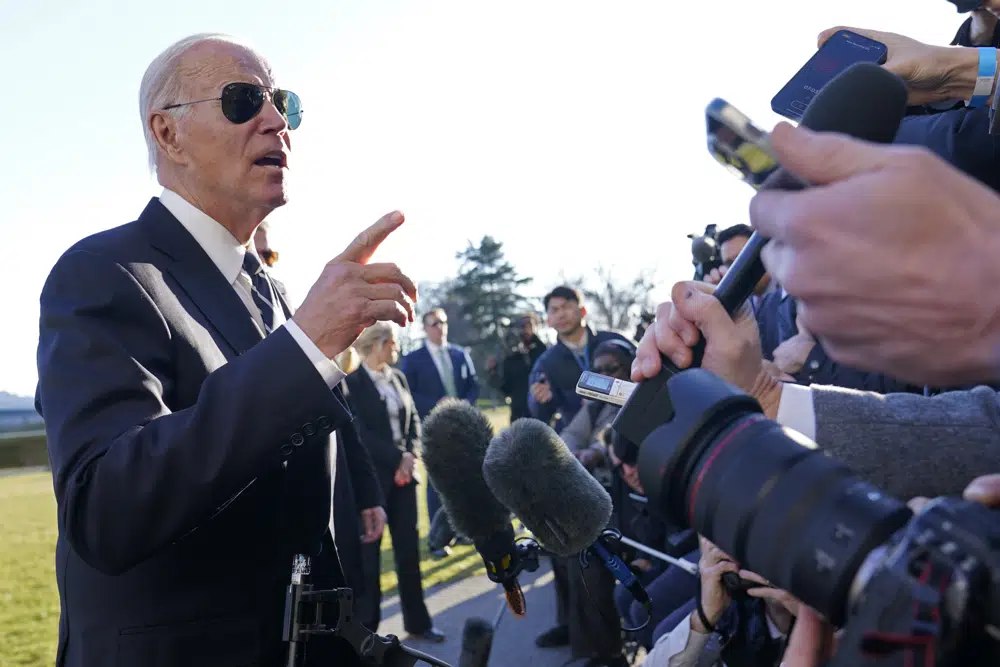
President Joe Biden informed Congress on Monday that he will end the twin national emergencies for addressing COVID-19 on May 11, as most of the world has returned closer to normalcy nearly three years after they were first declared. The move to end the national emergency and public health emergency declarations would formally restructure the federal coronavirus response to treat the virus as an endemic threat to public health that can be managed through agencies’ normal authorities. It comes as lawmakers have already ended elements of the emergencies that kept millions of Americans insured during the pandemic. Combined with the drawdown of most federal COVID-19 relief money, it would also shift the development of vaccines and treatments away from the direct management of the federal government. Biden’s announcement comes in a statement opposing resolutions being brought to the floor this week by House Republicans to bring the emergency to an immediate end. House Republicans are also gearing up to launch investigations on the federal government’s response to COVID-19. Then-President Donald Trump first declared the COVID-19 pandemic a national emergency on March 13, 2020. The emergencies have been repeatedly extended by Biden since he took office in January 2021 and are set to expire in the coming months. The White House said Biden plans to extend them both briefly to end on May 11. “An abrupt end to the emergency declarations would create wide-ranging chaos and uncertainty throughout the health care system — for states, for hospitals and doctors’ offices, and, most importantly, for tens of millions of Americans,” the Office of Management and Budget wrote in a Statement of Administration Policy. More than 1.1 million people in the U.S. have died from COVID-19 since 2020, according to the Centers for Disease Control and Prevention, including about 3,700 last week. Congress has already blunted the reach of the public health emergency that had the most direct impact on Americans as political calls to end the declaration intensified. Lawmakers have refused for months to fulfill the Biden administration’s request for billions more dollars to extend free COVID vaccines and testing. And the $1.7 trillion spending package passed last year and signed into law by Biden put an end to a rule that barred states from kicking people off Medicaid, a move that is expected to see millions of people lose their coverage after April 1. “In some respects, the Biden administration is catching up to what a lot of people in the country have been experiencing,” said Larry Levitt, the executive vice president for health policy at Kaiser Family Foundation. “That said, hundreds of people a day are still dying from COVID.” Still, some things will change for Americans once the emergency expires, Levitt pointed out. The costs of COVID-19 vaccines are also expected to skyrocket once the government stops buying them, with Pfizer saying it will charge as much as $130 per dose. Only 15% of Americans have received the recommended, updated booster that has been offered since last fall. People with private insurance could have some out-of-pocket costs for vaccines, especially if they go to an out-of-network provider, Levitt said. Free at-home COVID tests will also come to an end. And hospitals will not get extra payments for treating COVID patients. Legislators did extend for another two years telehealth flexibilities that were introduced as COVID-19 hit, leading healthcare systems around the country to regularly deliver care by smartphone or computer. The Biden administration had previously considered ending the emergency last year but held off amid concerns about a potential “winter surge” in cases and to provide adequate time for providers, insurers, and patients to prepare for its end. Officials said the administration would use the next three months to transition the response to conventional methods, warning that an immediate end to the emergency authorities “would sow confusion and chaos into this critical wind-down.” “To be clear, continuation of these emergency declarations until May 11 does not impose any restriction at all on individual conduct with regard to COVID-19,” the administration said. “They do not impose mask mandates or vaccine mandates. They do not restrict school or business operations. They do not require the use of any medicines or tests in response to cases of COVID-19.” Case counts have trended downward after a slight bump over the winter holidays and are significantly below levels seen over the last two winters — though the number of tests performed for the virus and reported to public health officials has sharply decreased. On Monday, the World Health Organization said the coronavirus remains a global health emergency, even as a key advisory panel for the group found the pandemic may be nearing an “inflexion point” where higher levels of immunity can lower virus-related deaths. China, for example, reported an unprecedented surge in December after lifting most of its COVID-19 restrictions. Moments before the White House’s announcement, Rep. Tom Cole, R-Okla., accused the president of unnecessarily extending the public health emergency to take action on issues like forgiving some federal student loan debts. “The country has largely returned to normal,” Cole said Monday, introducing a Republican-backed bill calling for an end to the health emergency. “Everyday Americans have returned to work and to school with no restrictions on their activities. It is time that the government acknowledges this reality: the pandemic is over.” Republished with the permission of The Associated Press.
Tommy Tuberville urges Congress to ‘protect freedom’ from Covid-19 lockdowns
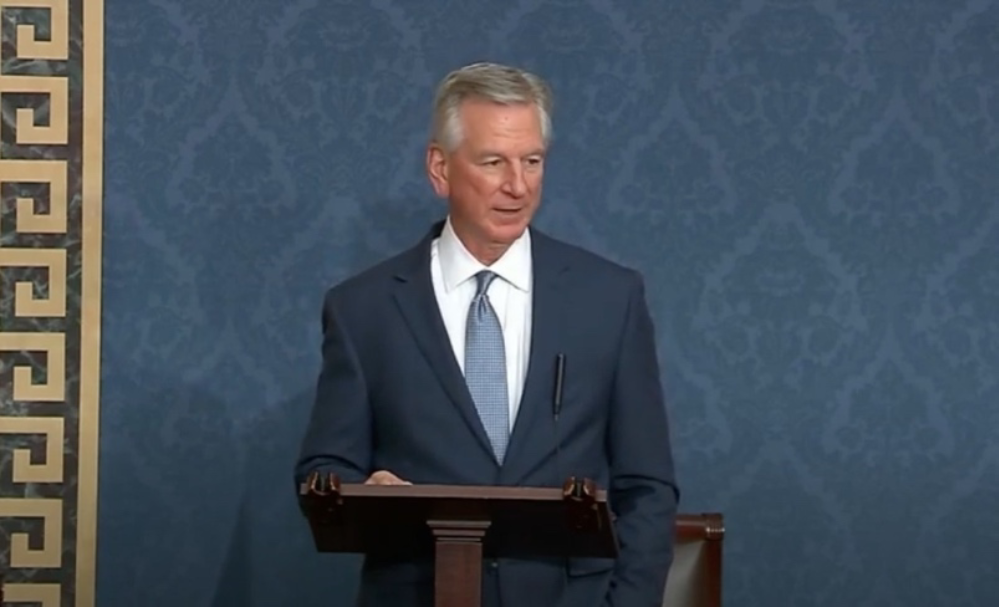
As the 118th Congress begins, U.S. Senator Tommy Tuberville urged his fellow legislators to address the serious and deadly consequences of COVID-19 lockdown measures on Americans’ health and the country’s educational system. In a speech on the floor of the U.S. Senate on Monday, Tuberville laid out the rise in excess mortality rates and decrease in academic success during COVID-19 lockdowns. Tuberville called on Congress to vote to end the federal COVID-19 emergency declaration and vow to never again use such dangerous lockdown measures. “It’s high time we take a look back at the devastating impacts some of the federal and state government policies in response to COVID-19,” Sen. Tuberville said. “Most importantly, we have to focus on education. We have to look at the toll the lockdowns have taken on our country’s youngest citizens. Unfortunately, like many issues in D.C., the COVID crisis was weaponized for some political gain. The government misused emergency measures to grow its control over Americans’ daily lives. Hopefully, those days are over.” “The excess rate is a term used to describe the number of deaths above historical norms, or how many Americans died than we would typically expect to pass away during any given year,” Tuberville explained. “According to data from the CDC, the number of non-COVID excess deaths reached almost 100,000 people in 2020 and 2021. The hundreds of thousands of non-COVID excess deaths during the pandemic can be mainly attributed to shocking increases in accidents, overdoses, and death from alcoholism and homicide. And those causes disproportionately impacted minorities and low-income Americans, the same groups lockdowns were often billed and made to protect.” “In total, excess deaths among young adults throughout the pandemic were 27 percent higher than they should be, according to historical trends,” Tuberville said. “It does not take a scientist to draw the connection between lockdowns and all the excess deaths that we’ve had the past three years. Not only were Americans kept out of gyms, parks, churches, social settings, and family gatherings — they were forced to skip routine doctor visits, surgeries, and in-person medical treatments out of fear. And fear was the main weapon used against the American people. As a result, mental and physical health plummeted.” According to the Centers for Disease Control and Prevention (CDC), American life expectancy dropped .9 years in 2021 and 1.8 years in 2021 to 76.1 years – the lowest level since 1996 after decades of gradually increasing American life expectancy. “Today, our schools are facing a shortage of teachers, months of instruction still missing, [and] a mental health and behavioral crisis among our country’s students,” Tuberville added. “As someone who spent decades as an educator and a coach and fostered the potential of young adults, I am committed to ensuring we never inflict the damage on our school-aged kids again.” “We must be the barrier between the American people and tyranny because tyranny [and] orders — like COVID lockdowns — are dangerous. As we get to work this Congress, I hope all of my colleagues join me in recognizing the tough realities I have just laid out…We have to commit to defending freedom in every circumstance.” New end-of-year testing showed a significant drop in test scores and learning for elementary school-aged children in the United States. The decline in reading and math for 9-year-olds was the largest in decades. Math scores dropped even more among Black students. The declines were sharpest among students still struggling with basic math skills and simple reading. The gaps between the haves and have-nots increased. Some students will never be able to recover from the months of limited or no instruction. Tuberville is still in his first term representing Alabama in the United States Senate. Tuberville was elected in 2020 after a long successful career coaching football. To connect with the author of this story, or to comment, email brandonmreporter@gmail.com.
Pentagon drops COVID-19 vaccine mandate for troops
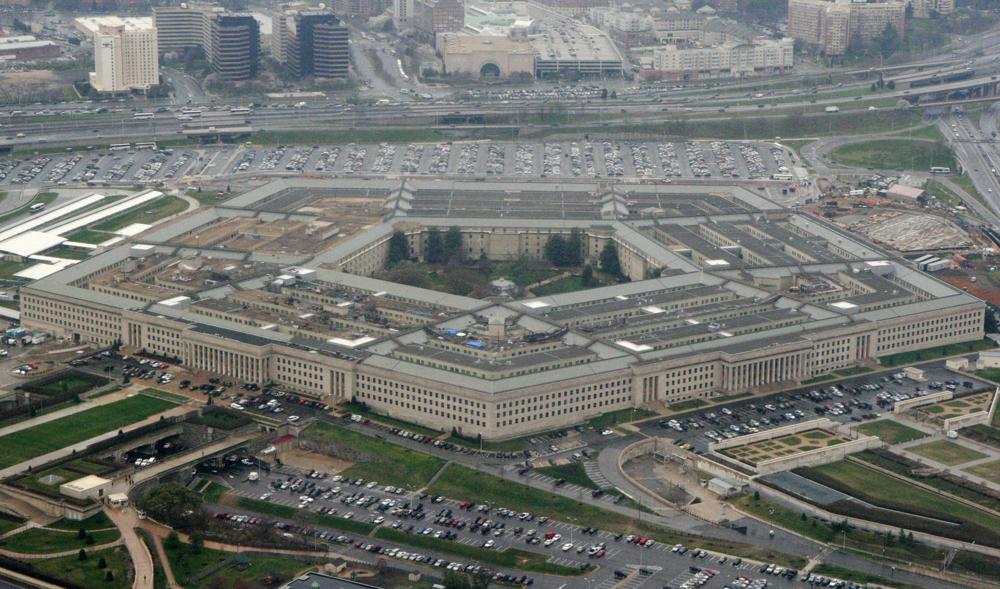
The Pentagon formally dropped its COVID-19 vaccination mandate Tuesday, but a new memo signed by Defense Secretary Lloyd Austin also gives commanders some discretion in how or whether to deploy troops who are not vaccinated. Austin’s memo has been widely anticipated ever since legislation signed into law on December 23 gave him 30 days to rescind the mandate. The Defense Department had already stopped all related personnel actions, such as discharging troops who refused the shot. “The Department will continue to promote and encourage COVID-19 vaccination for all service members,” Austin said in the memo. “Vaccination enhances operational readiness and protects the force.” Austin said that commanders have the authority to maintain unit readiness and a healthy force. He added, however, that other department policies — including mandates for other vaccines — remain in place. That includes, he said, “the ability of commanders to consider, as appropriate, the individual immunization status of personnel in making deployment, assignment, and other operational decisions, including when vaccination is required for travel to, or entry into, a foreign nation.” The contentious political issue, which has divided America, forced more than 8,400 troops out of the military for refusing to obey a lawful order when they declined to get the vaccine. Thousands of others sought religious and medical exemptions. Austin’s memo ends those exemption requests. Austin, who instituted the mandate in August 2021 after the Pfizer vaccine was approved by the Food and Drug Administration and as the coronavirus pandemic raged, was staunch in his desire to maintain it insisting the vaccine was necessary to protect the health of the force. He and other defense leaders argued that for decades troops, particularly those deployed overseas, had been required to get as many as 17 different vaccines. No other vaccine mandates were affected by the new law. But Congress agreed to rescind the mandate, with opponents reluctantly saying that perhaps it had already succeeded in getting the bulk of the force vaccinated. Roughly 99% of active-duty troops in the Navy, Air Force, and Marine Corps had gotten the vaccine, and 98% of the Army. The Guard and Reserve rates are lower but generally are more than 90%. Austin’s memo was unapologetic in his continued support for the vaccine, and his belief that the mandate kept the force healthy and able to protect America. The Pentagon’s vaccine efforts, he said, “will leave a lasting legacy in the many lives we saved, the world-class force we have been able to field, and the high level of readiness we have maintained, amidst difficult public health conditions.” In addition to ending efforts to discharge troops who refuse the vaccine, Austin’s memo says that those who sought exemptions and were denied will have their records updated, and any letters of reprimand will be removed. Those who were discharged for refusing to obey a lawful order to take the vaccine received either an honorable discharge or a general discharge under honorable conditions. Austin’s memo says that anyone who was discharged can petition their military service to request a change in the “characterization of their discharge” in their personnel records. It does not, however, say what possible corrections could be awarded. Austin’s decision leaves some discretion to commanders, allowing them to decide whether they can require vaccines in some circumstances, such as certain deployments overseas. Military officials vividly recall the overwhelming crisis of the USS Theodore Roosevelt, the Navy aircraft carrier that was knocked out of duty and sidelined in Guam for ten weeks in early 2020 as the emerging virus swept through the ship. More than 1,000 crew members eventually became infected, and one sailor died. Military leaders worry that if troops begin to refuse the vaccine in large numbers, similar outbreaks could occur. The risk is particularly high on small ships or submarines where service members are jammed into close quarters for weeks or months at a time, or on critical combat missions, such as those involving special operations forces that deploy in small teams. According to data compiled by the military as of early December, the Marine Corps leads the services with 3,717 Marines discharged. There have been 2,041 discharged from the Navy, 1,841 from the Army, and 834 from the Air Force. The Air Force data includes the Space Force. What’s not clear is if the services, who are facing recruiting challenges, will want — or be able to — allow any of those service members to return to duty, if they still meet all necessary fitness and other requirements. Lawmakers argued that ending the mandate would help with recruiting. Defense officials have pushed back by saying that while it may help a bit, a department survey during the first nine months of last year found that a large majority said the mandate did not change the likelihood they would consider enlisting. Republished with the permission of The Associated Press.
Foundation for Moral Law cheers Air Force vaccine victory
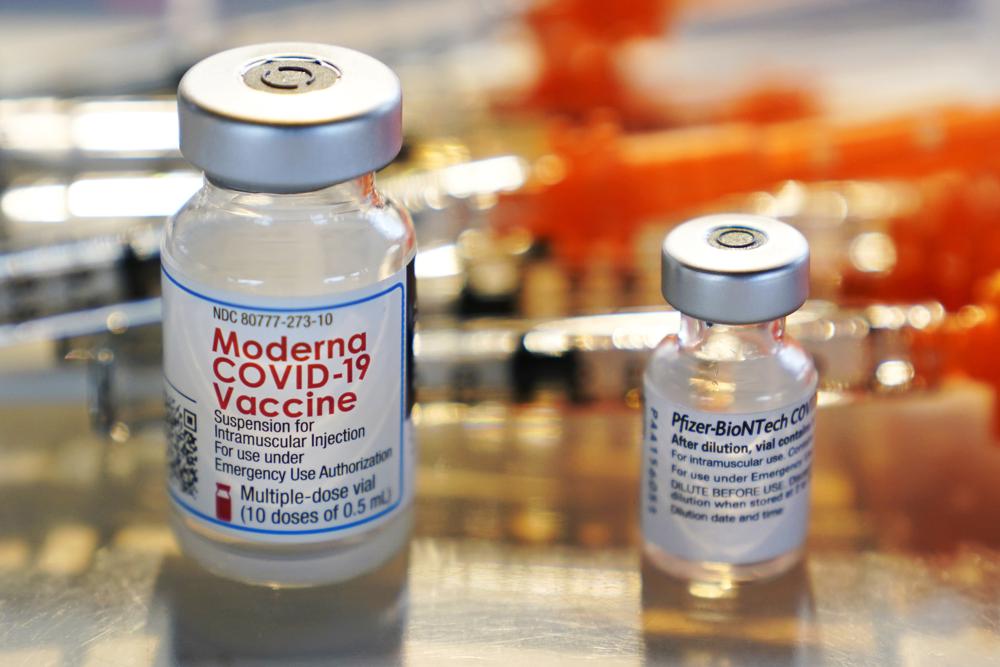
The Foundation for Moral Law, an Alabama nonprofit dedicated to the defense of religious liberty, applauded the November 29 Doster v. Kendall decision of the Sixth Circuit U.S. Court of Appeals affirming a lower court class-wide injunction prohibiting the Air Force from requiring personnel with religious objections to undergo COVID vaccinations. Eighteen plaintiffs sued Air Force Secretary Frank Kendall and others in February 2022. Prior to the lawsuit, the Air Force had required all personnel to get the Covid-19 vaccine. The plaintiffs in the case argued the mandate violated their religious freedom under the First Amendment and the Religious Freedom Restoration Act of 1993. The District Court agreed. The District Court later expanded the order into a class injunction protecting all USAF personnel with religious objections. The Air Force appealed to the Sixth Circuit, and the Foundation filed an amicus brief supporting those who had religious objections. The Sixth Circuit unanimously affirmed the lower court’s order. The Foundation argued that, although the Air Force had established a policy for considering religious exemptions, the Air Force, in fact, did nothing but rubberstamp denials. The plaintiffs argued that the Air Force granted about 135 of 10,000 requests for vaccine exemptions for religious reasons — and then only to those planning to leave the service. The Liberty Counsel, a non-profit organization that litigates in cases the organization believes involve religious freedom, stated, “The Air Force even agreed that it has not granted any religious exemptions to anyone who does not plan to leave the service within a year. On the other hand, in December 2021, there were a total of 2,047 service members currently with medical exemptions and 2,247 service members currently with administrative exemptions.” The Court agreed and further reasoned that because the Air Force granted thousands of medical and administrative exemptions, their argument that military necessity prevents religious objections was unpersuasive. The Court concluded that First Amendment and the Religious Freedom Restoration Act both protect military personnel. Judge Roy Moore, Founder and President Emeritus of the Foundation and a West Point graduate, hailed the decision as “a long-overdue victory for military personnel over a flawed and useless policy that has ruined the careers of many soldiers and the health of many others.” Foundation Senior Counsel John Eidsmoe, primary author of the amicus brief and a retired Air Force Judge Advocate, noted, “The Sixth Circuit accepted our argument that the USAF failed to give its personnel the individualized determinations that the Constitution requires in Stanley v. Illinois.” Colonel Eidsmoe added, “I love the Air Force, but I also love the men and women who wear Air Force blue, and I believe they are entitled to the protection of the Constitution they have sworn to defend.”
State attorneys general led by Louisiana’s Jeff Landry urge CDC to reverse COVID vaccine school guidance
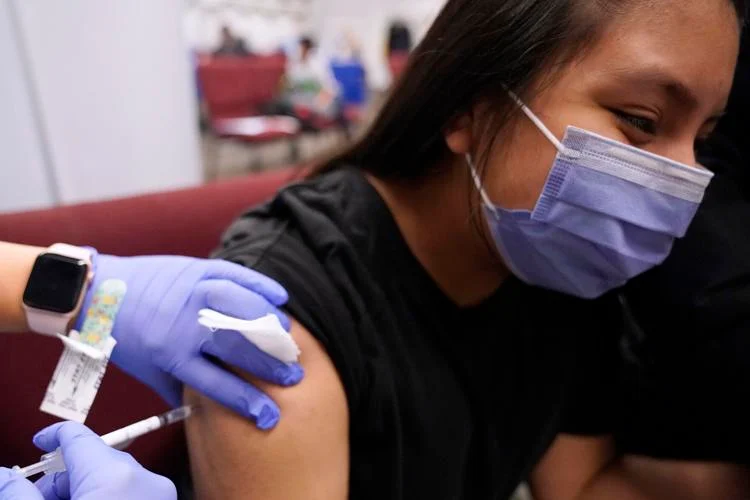
Attorneys general in a dozen states are urging the Centers for Disease Control’s Advisory Committee on Immunization Practices to reverse course on recommendations to include the COVID-19 vaccine on federal child immunization lists. “This action could deny many parents the freedom to determine whether to subject their kids to an experimental vaccine,” Louisiana Attorney General Jeff Landry said. The attorneys general penned a letter to the CDC’s ACIP committee Thursday in regards to two votes taken during meetings this week, which occurred before the close of the public comment period on including the COVID-19 vaccine on child immunization lists. The advisory committee voted 15-0 on Thursday to add COVID-19 vaccines to the 2023 schedule of childhood and adult immunizations, and the CDC is expected to accept the recommendation. The committee voted unanimously the day prior to add the vaccine to the Vaccines for Children Program, which was created by Congress to ensure low-income children have access to free vaccines. “States have traditionally relied heavily on these lists to inform their vaccination policies,” the letter reads. “As a result, in many states, your decision is unnecessary and subjects children to retaliation for their parent or guardian’s decisions to decline this vaccination.” The letter argues vaccines currently included on the childhood immunization lists protect against viruses that “have killed millions of children over the years,” unlike COVID-19, which “does not pose the same danger to kids as polio or measles, nor does the vaccine provide the same protection.” “While most vaccines prevent the vaccinated individual from getting the disease in the first place and stop the spread of the disease, the COVID-19 vaccine does neither,” the attorneys general wrote. Including the COVID-19 vaccine could do more harm than good by undermining the public’s faith in the CDC, they wrote, citing ongoing research into both the virus and vaccines, as well as “widespread disagreement on whether kids need to be vaccinated” as important reasons to wait. “It’s far too early in the process to potentially require otherwise healthy kids to get a vaccine that will not prevent them or others from getting sick. In fact, the vaccine could do the opposite and create complications for kids who are forced to get the vaccine to attend school or play sports,” the letter reads. “Given the lack of need for kids to obtain the vaccines and their lack of effectiveness, adding the COVID-19 vaccine to the list of childhood immunizations amounts to little more than a payout to big pharmaceutical companies at the expense of kids and parents.” The attorneys general pointed to the continued “fallout of school closures and the forced masking of kids” that resulted from the “failures of misguided politicians, government bureaucrats, and their select experts, “and urged the committee to “reject considerations of adding the COVID-19 vaccine to the list of childhood immunities and the VFC.” “A modicum of humility is in order from the elites who demanded Americans’ trust then betrayed it with failed policies, and simultaneously ensured that those with the audacity to question the individuals wielding such power over individual lives and livelihoods would be targeted for censorship and blame,” the letter reads. “Our Nation’s children are not the federal government’s guinea pigs,” the attorneys general wrote. “As a country that failed so many children over the last couple of years, we owe it to them and their parents to take a responsible path forward.” The letter was signed by attorneys general from Louisiana, Missouri, Alabama, Montana, Arizona, Nebraska, Arkansas, Oklahoma, Florida, South Carolina, Indiana, and Texas. Republished with the permission of The Center Square.
White House urges caution on COVID variants, pushes boosters

The Biden administration is calling on people to exercise renewed caution about COVID-19, emphasizing the importance of getting booster shots for those who are eligible and wearing masks indoors as two new highly transmissible variants are spreading rapidly across the country. The new variants, labeled BA.4 and BA.5, are offshoots of the omicron strain that has been responsible for nearly all of the virus spread in the U.S. and are even more contagious than their predecessors. White House doctors stressed the importance of getting booster doses, even if you have recently been infected. “Currently, many Americans are under-vaccinated, meaning they are not up to date on their COVID-19 vaccines,” said Dr. Rochelle Walensky, director of the Centers for Disease Control and Prevention. “Staying up to date on your COVID-19 vaccines provides the best protection against severe outcomes.” Walensky said the U.S. has seen a doubling in the number of hospitalizations due to COVID-19 since April, reflecting the spread of the new subvariants, though deaths remain steady around 300 per day. Dr. Anthony Fauci, the nation’s top infectious disease expert, said while the new variants are concerning, with boosters, indoor masking, and treatments the country has the tools to keep them from being disruptive. “We should not let it disrupt our lives,” he said, “but we cannot deny that it is a reality that we need to deal with.” He added that even if someone recently had COVID-19, they should get a booster. “Immunity wanes, so it is critical to stay up to date with COVID-19 vaccines,” he said. All Americans age five and over should get a booster five months after their initial primary series, according to the CDC, and those age 50 and over — or those who are immunocompromised — should get a second booster four months after their first. According to CDC, tens of millions of eligible Americans haven’t received their first booster, and of those over 50 who got their first booster, only 28% have received their second. “If you’re over 50 and you haven’t gotten the shot this year, you should go get a shot,” said White House COVID-19 coordinator Dr. Ashish Jha. “It’s going to save your life.” Jha and Fauci said the U.S. is regularly discussing expanding eligibility for a second booster shot to all adults but that no decision has been made yet. “It’s a regulatory decision on the part of the FDA,” Fauci said. Jha said people who are eligible for a booster but haven’t received one shouldn’t wait for forthcoming vaccines targeted at the omicron strain in addition to the original form of the coronavirus. The U.S. has ordered 105 million of those updated shots, which studies show provide better protection against omicron variants, but they won’t be available until the fall. “Let me be clear, if you get vaccinated today, you’re not going to be ineligible to get the variants specific vaccine, as we get into the later part of fall and winter,” Jha said. “So, this is not a tradeoff. We’ve got plenty. It’s a great way to protect yourself.” Added Fauci, “The threat to you is now.” Walensky noted that CDC data shows that about a third of Americans are living in areas the agency classifies as experiencing a high level of COVID spread, where the agency recommends people wear masks in public indoor spaces. Another 41% live in the CDC’s “medium” level, where it recommends that people consider their own individual risk and consider masking. Republished with the permission of The Associated Press.
White House: 1st COVID-19 shots for kids under 5 possible by June 21

The Biden administration said Thursday that children under 5 may be able to get their first COVID-19 vaccination doses as soon as June 21, if federal regulators authorize shots for the age group, as expected. White House COVID-19 coordinator Aashish Jha outlined the administration’s planning for the last remaining ineligible age group to get shots. He said the Food and Drug Administration’s outside panel of advisers will meet on June 14-15 to evaluate the Pfizer and Moderna shots for younger kids. Shipments to doctors’ offices and pediatric care facilities would begin soon after FDA authorization, with the first shots possible the following week. Jha said states can begin placing orders for pediatric vaccines on Friday, and said the administration has an initial supply of 10 million doses available. He said it may take a few days for the vaccines to arrive across the country and vaccine appointments to be widespread. “Our expectation is that within weeks every parent who wants their child to get vaccinated will be able to get an appointment,” Jha said. The Biden administration is pressing states to prioritize large-volume sites like children’s hospitals, and to make appointments available outside regular work hours to make it easier for parents to get their kids vaccinated. Jha acknowledged the “frustration” of parents of young children who have been waiting more than a year for shots for their kids. “At the end of the day we all want to move fast, but we’ve got to get it right,” he said. Republished with the permission of The Associated Press.
Frank Samolis: Waiving patent rights will make us less prepared for the next pandemic
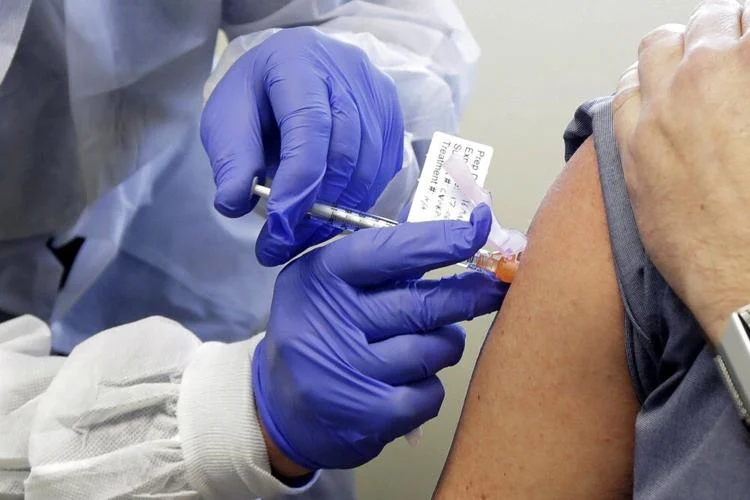
The World Trade Organization (WTO) recently released the text of a proposal to suspend patents on COVID-19 vaccines. All WTO members will vote on the proposal in June. The text won’t take effect unless all 164 members sign on. But if it is approved, companies in developing nations will be allowed to use medical technology from U.S. companies and inventors without their consent or supervision. Waiving patent rights would hurt not only the American companies that developed COVID-19 vaccines, but the biopharmaceutical sector, medical innovation, and the U.S. economy as a whole. And invalidating intellectual property rights would fail to address the real problem that waiver advocates say they want to fix: low vaccination rates in the developing world. The governments of India and South Africa, which first petitioned the WTO for a patent waiver in 2020, insist that suspending intellectual property rights will boost manufacturing and thus get more shots into arms. That simply isn’t true. According to the analytics firm Airfinity, about 12 billion COVID-19 vaccine doses have been delivered to date, and global production capacity for 2022 is 20 billion. That’s more than four doses for every person on the planet. Doses are piling up unused. In February, the Africa Centres for Disease Control and Prevention stopped accepting vaccine donations, as its stockpiles are full and excess supply could expire. India’s largest drug manufacturer, the Serum Institute, has 200 million doses stockpiled and has ceased production until new orders come in. The problem is not production — it’s distribution. Some of the actual challenges hampering vaccine distribution are public skepticism and lack of infrastructure. Well-executed foreign aid could help expand access. But we won’t solve any of these challenges by upending intellectual property rights. To the contrary, doing so would undermine global public health for decades to come. At the simplest level, a patent protects an inventor’s right to make and sell her product for a set period of time. A patent doesn’t guarantee business success; rather, it encourages inventors to risk time and money on developing products that may or may not prove successful. America’s robust intellectual property protections are the reason so much innovation takes place in the United States. Notably, strong intellectual property laws encouraged years of research into messenger RNA, the technology underlying the COVID-19 vaccines made by Pfizer and Moderna. If we cancel vaccine patents, we won’t just punish the companies that delivered these life-saving inoculations. We’ll also undercut the small biotech firms that licensed their groundbreaking tech to these larger, vaccine-producing behemoths. And we’ll slash investment into drug development as a whole. Before entering an international agreement to waive patent rights, the Biden Administration should consult with Congress and the U.S. Patent and Trademark Office (USPTO), the agency charged with protecting intellectual property. Previous directors of the USPTO — from the Obama and Trump Administrations — have spoken out strongly against the patent waiver. Some of those pushing for a patent waiver may genuinely want to increase vaccine access and improve global public health. But if the current proposal becomes international law, it will distract from real solutions. And it will undermine our ability to fight disease in the future. Frank Samolis, an attorney, is a partner and co-chair of the International Trade Practice at Squire Patton Boggs. Previously, Frank was counsel to the Subcommittee on Trade of the Committee on Ways and Means, US House of Representatives. The views expressed here are his own. This piece originally ran in the Detroit News. Republished with the permission of The Center Square.
COVID coverage for all dries up even as hospital costs rise
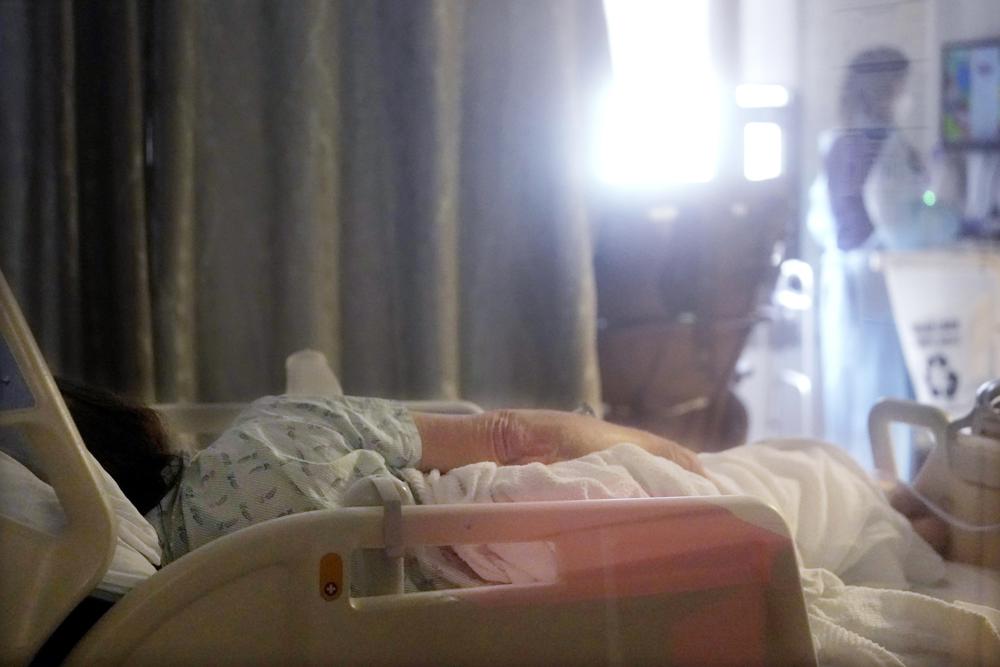
For the first time, the U.S. came close to providing health care for all during the coronavirus pandemic — but for just one condition, COVID-19. Now, things are reverting to the way they were as federal money for COVID care of the uninsured dries up, creating a potential barrier to timely access. But the virus is not contained, even if it’s better controlled. And safety-net hospitals and clinics are seeing sharply higher costs for salaries and other basic operating expenses. They fear they won’t be prepared if there’s another surge and no backstop. “We haven’t turned anybody away yet,” said Dr. Mark Loafman, chair of family and community medicine at Cook County Health in Chicago. “But I think it’s just a matter of time … People don’t get cancer treatment or blood pressure treatment every day in America because they can’t afford it.” A $20 billion government COVID program covered testing, treatment, and vaccine costs for uninsured people. But that’s been shut down. Special Medicaid COVID coverage for the uninsured in more than a dozen states also likely faces its last months. At Parkland Health, the frontline hospital system for Dallas, Dr. Fred Cerise questions the logic of dialing back federal dollars at a time when health officials have rolled out a new “test-to-treat” strategy. People with COVID-19 can now get antiviral pills to take at home, hopefully avoiding hospitalization. Vice President Kamala Harris, who recently tested positive but is back working at the White House, is an example. “Test-to-treat will be very difficult for uninsured individuals,” predicted Cerise, president and CEO of the system. “If it’s a change in strategy on the large scale, and it’s coming without funding, people are going to be reluctant to adopt that.” Officials at the federal Department of Health and Human Services say the new antiviral drugs like Paxlovid have been paid for by taxpayers, and are supposed to be free of charge to patients, even uninsured ones. But they acknowledge that some uninsured people can’t afford the medical consultation needed to get a prescription. “We hear from state and local partners that the lack of funding for the Uninsured Program is creating challenges for individuals to access medications,” said Dr. Meg Sullivan, chief medical officer for the HHS preparedness and response division. The nation has not pinched pennies on the pandemic before. “We’re well short of universal health coverage in the U.S., but for a time, we had universal coverage for COVID,” said Larry Levitt, a health policy expert with the nonpartisan Kaiser Family Foundation. “It was extraordinary.” Recently an urgent White House request for $22.5 billion for COVID priorities failed to advance in Congress. Even a pared-back version is stuck. Part of the Biden administration’s request involves $1.5 billion to replenish the Uninsured Program, which paid for testing, treatment, and vaccine-related bills for uninsured patients. The program has now stopped accepting claims due to lack of money. That program, along with a less known Medicaid option for states, allowed thousands of uninsured people to get care without worrying about costs. Bipartisan support has given way as congressional Republicans raise questions about pandemic spending. The Uninsured Program was run by the Health Resources and Services Administration, an HHS agency. Medical providers seeing uninsured people could submit their bills for reimbursement. Over the last two years, more than 50,000 hospitals, clinics, and medical practices received payments. Officials say they can turn the program back on if Congress releases more money. The Medicaid coverage option began under the Trump administration as a way to help states pay for testing uninsured people. President Joe Biden’s coronavirus relief bill expanded it to treatment and vaccine costs as well. It’s like a limited insurance policy for COVID. The coverage can’t be used for other services, like a knee replacement. The federal government pays 100% of the cost. Fifteen states, from deep blue California to bright red South Carolina, have taken advantage of the option, along with three U.S. territories. It will end once the federal coronavirus public health emergency is over, currently forecast for later this year. New Hampshire Medicaid Director Henry Lipman said the coverage option allowed his state to sign up about 9,500 people for COVID care that includes the new antiviral drugs that can be taken at home. “It’s really the safety net for people who don’t have any access to insurance,” said Lipman. “It’s a limited situation, but in the pandemic, it’s a good back-up to have. It makes a lot of sense with such a communicable disease.” With COVID cases now at relatively low levels, demand for testing, treatment, and vaccination is down. But the urgency felt by hospitals and other medical service providers is driven by their own bottom lines. In Missouri, Golden Valley Memorial Healthcare CEO Craig Thompson is worried to see federal funding evaporate just as operating costs are soaring. Staff have gotten raises, drug costs have risen by 20%, and supply costs by 12%. “We’ve now exited this pandemic … into probably the highest inflationary environment that I’ve seen in my career,” Thompson said. The health system serves a largely rural area between Kansas City and Springfield. In Kentucky, Family Health Centers of Louisville closed a testing service for uninsured people once federal funds dried up. The private company they were working with planned to charge $65 a test. Things are manageable now because there’s little demand, said spokeswoman Melissa Mather, “but if we get hit with another omicron, it’s going to be very difficult.” Floridian Debra McCoskey-Reisert is uninsured and lost her older brother to COVID-19 in the first wave two years ago. In one of their last conversations, he made her promise she wouldn’t catch the virus. McCoskey-Reisert, who lives north of Tampa, has managed to avoid getting sick so far. But she’s overshadowed by fear of what could happen if she or her husband get infected. “If either one of us get sick with COVID, we don’t have a way to pay for it,” she said. “It would


